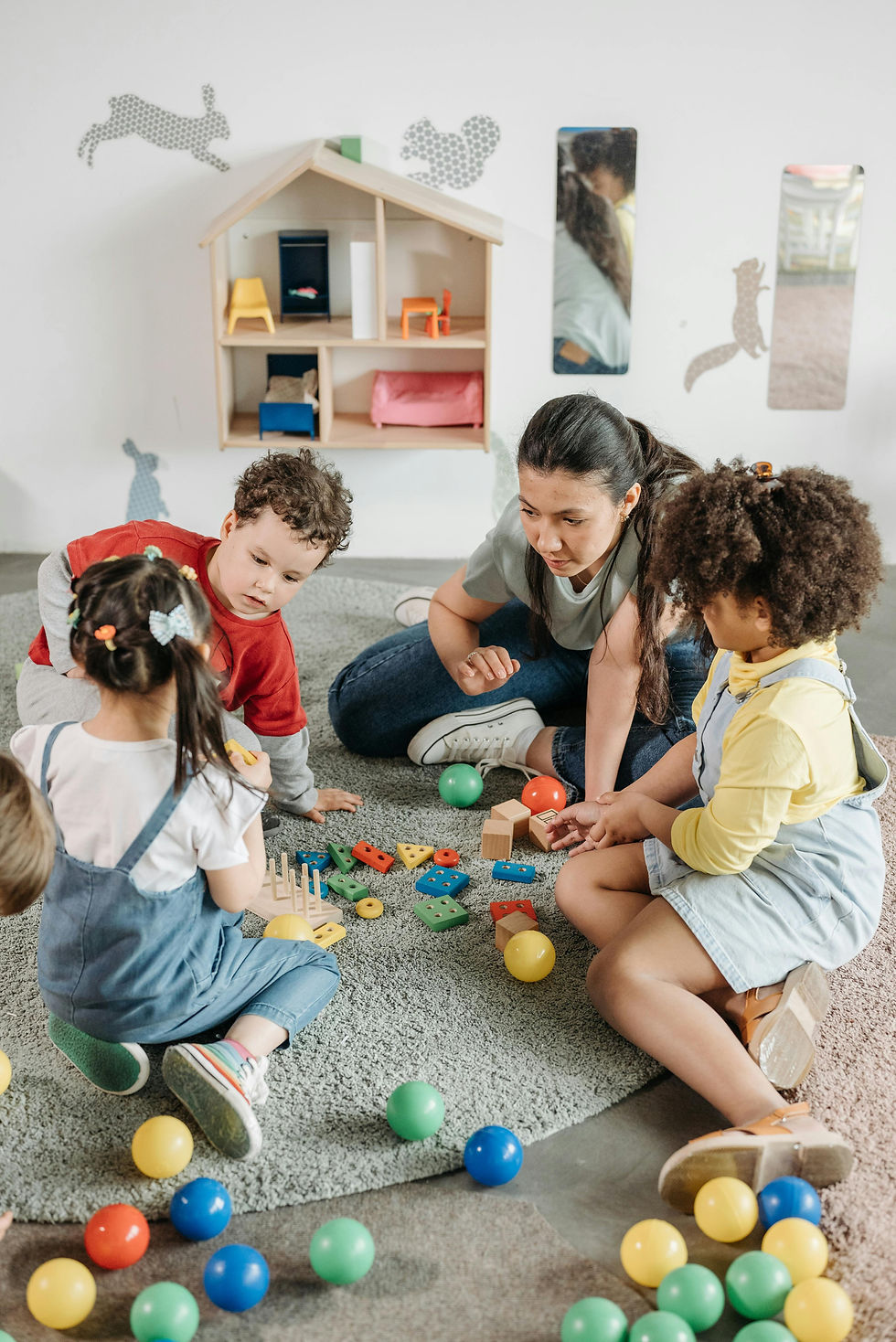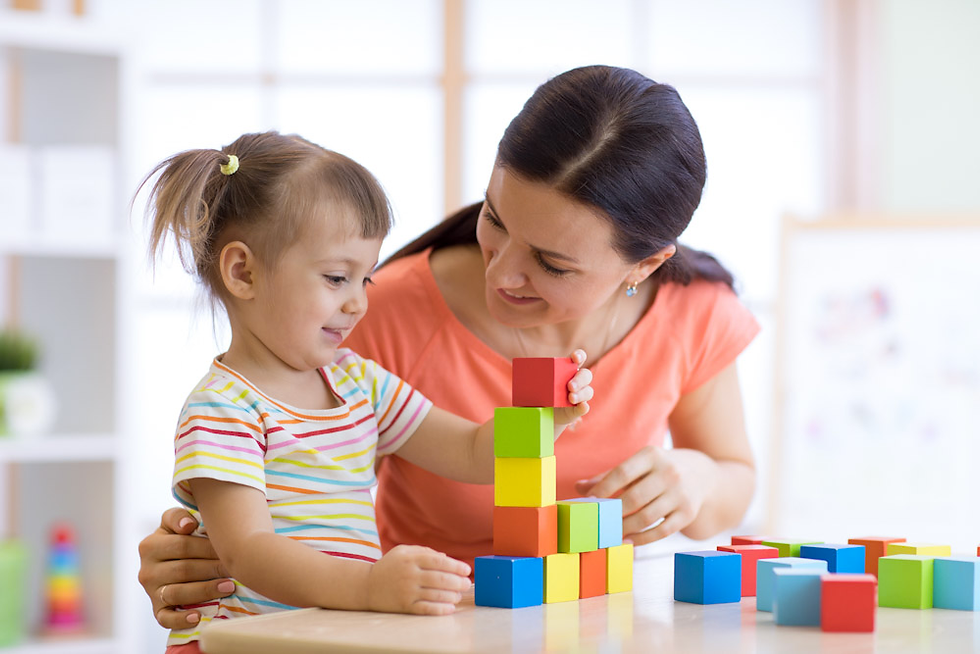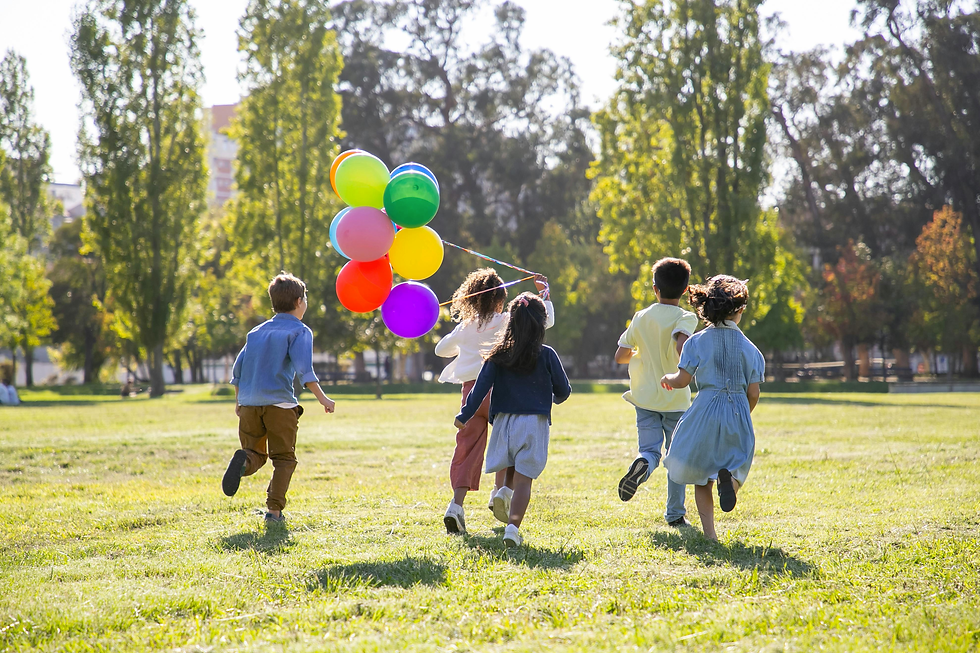Summer Tips for Parents: Support Your Autistic Child’s Communication the Easy Way
- Jireh Mejino
- Jun 20, 2025
- 4 min read
Summer break doesn't have to mean a pause in communication development for autistic children. With thoughtful planning and evidence-based strategies, families can create rich communication opportunities that feel natural and enjoyable while supporting continued growth in social interaction and language skills.
The Foundation of Communication in Autism
Social communication represents one of the main areas of impairment in the case of individuals with autism spectrum disorder (ASD), making targeted support essential year-round. Research indicates that about 25% to 30% of children with ASD either fail to develop functional language or are minimally verbal, highlighting the critical importance of consistent communication intervention even during school breaks.
Understanding that communication challenges in autism stem from differences in social cognitive processing helps families approach summer communication support with appropriate expectations and strategies. The relaxed atmosphere of summer break can actually provide ideal conditions for practicing communication skills without the pressure of formal academic settings.
Research-Based Communication Strategies
Recent educational research has identified effective approaches for supporting communication development in autistic children. A research-based strategy called POWR: Prepare, Offer, Wait, and Respond, can be used by educators and families to effectively enhance the social communication development of students with ASD. This framework provides structure while maintaining the natural flow of interaction that makes summer activities enjoyable.
The POWR strategy involves preparing the communication environment, offering opportunities for interaction, waiting for the child's response, and responding appropriately to their communication attempts. During summer activities, this might look like preparing materials for a craft project, offering choices about which activity to do next, waiting for the child to indicate their preference, and responding enthusiastically to their choice.
Play-Based Communication Opportunities
Research demonstrates that play offers a unique context for social communication development, with studies providing a promising evidence base for supporting social communication skills through play in educational settings. Summer's emphasis on play and leisure activities creates natural opportunities for communication practice that don't feel like formal therapy sessions.
Outdoor games, water play, and imaginative activities provide rich contexts for practicing turn-taking, following directions, making requests, and engaging in back-and-forth interactions. These activities can be modified to match individual communication levels while maintaining their inherently motivating qualities.
Board games and structured activities offer opportunities for practicing conversation skills, asking questions, and negotiating rules, all important social communication competencies. The key is selecting activities that match the child's interests and current communication abilities while providing gentle challenges for growth.

Creating Communication-Rich Environments
Environmental modification plays a crucial role in supporting communication development. Creating opportunities for communication means sometimes engineering situations where children need to request help, make choices, or interact with others to achieve their goals. This might involve putting preferred items slightly out of reach, offering choices between activities, or setting up collaborative projects that require communication to complete.
Visual supports remain important during summer months, helping children understand expectations and express their own needs and preferences. Picture schedules, choice boards, and visual instructions can support communication while reducing anxiety about unfamiliar summer activities.
Technology can also support communication development during summer break. Communication apps, video modeling, and interactive games can provide structured practice opportunities while feeling like recreational screen time.

Family Centered Communication Support
Research emphasizes the importance of family involvement in communication intervention. Summer break provides extended opportunities for family members to practice communication strategies in natural, everyday contexts. Simple activities like cooking together, planning outings, or discussing the day's events become communication learning opportunities.
The informal nature of summer interactions allows for more relaxed communication practice. Families can focus on functional communication, the type of communication children need for daily life, rather than formal language exercises. This might include practicing requesting preferred foods, expressing preferences about activities, or sharing experiences with family members.

Supporting Different Communication Levels
Children with autism demonstrate widely varying communication abilities, and summer activities should be adapted accordingly. For children who are emerging communicators, focus might be on developing intentional communication through gestures, vocalizations, or simple sign language during preferred activities.
For children with developing verbal skills, summer activities provide opportunities to practice expanding utterances, asking questions, and engaging in longer conversations about interesting topics. The key is meeting children where they are while providing gentle encouragement for growth.

Social Communication in Natural Settings
Summer community activities such as visits to parks, libraries, or local events provide authentic contexts for practicing social communication skills. These experiences offer opportunities to practice greetings, making requests to unfamiliar people, and navigating social situations outside the immediate family. However, it's important to prepare children for these experiences and provide support as needed. Role-playing social interactions, discussing expectations, and having exit strategies all support successful community communication experiences.

Maintaining Progress During Break
While summer should feel relaxed and enjoyable, maintaining some structure around communication goals helps prevent regression. This doesn't mean formal therapy sessions, but rather incorporating communication practice into enjoyable daily activities.
Regular family meetings to plan activities, bedtime conversations about the day's highlights, and collaborative problem-solving around daily challenges all provide natural communication practice opportunities that support continued development.
The goal is creating a summer experience that feels fun and relaxed while providing rich opportunities for communication growth in natural, meaningful contexts.

References
Douglas, S. N., & Gerde, H. K. "A Strategy to Support the Communication of Students With Autism Spectrum Disorder." SAGE Journals, 2019. https://journals.sagepub.com/doi/abs/10.1177/1053451219833021
Brignell, A., et al. "Communication interventions for autism spectrum disorder in minimally verbal children." PMC. https://pmc.ncbi.nlm.nih.gov/articles/PMC6516977/
Costescu, C., et al. "Social Communication Predictors in Autism Spectrum Disorder. Theoretical Review." SAGE Open, 2022. https://journals.sagepub.com/doi/full/10.1177/20438087221106955
Kent, C., et al. "A Systematic Review of Play-Based Interventions Targeting the Social Communication Skills of Children with Autism Spectrum Disorder in Educational Contexts." Review Journal of Autism and Developmental Disorders, 2021. https://link.springer.com/article/10.1007/s40489-021-00286-3
Sandbank, M., et al. "Educational Interventions for Children and Youth with Autism: A 40-Year Perspective." PMC. https://pmc.ncbi.nlm.nih.gov/articles/PMC8531076/
Tandon, S., et al. "Educational Approaches to Improve Communication Skills of Learners with Autism Spectrum Disorder and Comorbid Intellectual Disability: An Integrative Systematic Review." Taylor & Francis Online, 2021. https://www.tandfonline.com/doi/full/10.1080/00313831.2021.1983862
Aljehany, M. S., et al. "Communication strategies used by adolescents with autism spectrum disorder and health professionals during treatment." PMC, 2022. https://www.ncbi.nlm.nih.gov/pmc/articles/PMC8991106/




Comments